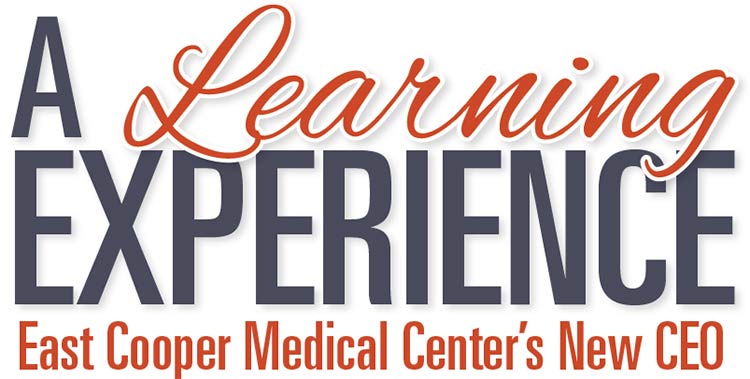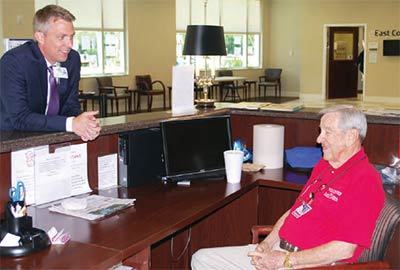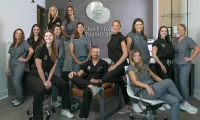
The new chief executive officer at East Cooper Medical Center is well aware that he doesn’t know everything about every department of the hospital. He insisted, however, that being an expert on two-and-a-half dozen building blocks of a modern medical facility is not a prerequisite for success in today’s health care environment.
Speaking of the future, Downes sees three major trends in health care: the expansion of telehealth, real-time diagnostics through an ingestible pill and an increase in surgeries in outpatient clinics rather than in hospitals.
Patrick Downes, who took over the reins of the 140-bed acute care hospital at the end of March, waded into the complex world of hospital administration after earning a bachelor’s and a master’s in Business Administration at Florida State University, entering a residency program operated by Tenet Health, which owns East Cooper Medical Center. At North Shore Medical Center in Miami, he said he learned from everyone at the hospital.

He readily admitted that his education is nowhere near complete.
“Hospitals are like little cities. There’s 30 different departments, and you have to have a basic knowledge of all 30,” said the 33-year-old Downes. “Even though I went through the residency program, it doesn’t mean I know everything about hospitals. My job is to hire the right people, support them and leverage their knowledge to help make the right decisions.”
All of Downes’ previous experience is in Florida. Most recently, he was chief executive officer of Coral Gables Hospital, and he also has served as chief operating officer at Hialeah Hospital and associate administrator of Tenet Florida Physician Services – a 70-member practice management group – and of North Shore Medical Center. Prior to that, he was a bill analyst and administrative assistant for the Florida House of Representatives and chief of staff for Florida Gov. Jeb Bush.
Downes’ experience in politics and medicine have taught him one important fact about the current battle over the future of health care in this country: Nobody really knows how it will turn out. He is confident, however, that whatever plan emerges needs to account for all Americans who might require health care services – now and in the future.
“The plan needs to have coverage for everyone, regardless of chronic diseases or pre-existing conditions,” he said.
Speaking of the future, Downes sees three major trends in health care: the expansion of telehealth, real-time diagnostics through an ingestible pill and an increase in surgeries in outpatient clinics rather than in hospitals. Downes said telehealth will expand access to primary care physicians through smartphones and other devices, but it will also give patients immediate access to specialists, possibly saving lives in the process. For instance, he said time is of the essence when a person suffers a stroke, pointing out that treatment within a two-hour window is essential. Through telehealth, a neurologist miles away can carry out a quick exam and prescribe treatment that can prevent long-term damage.
Real-time diagnostics gleaned from a pill the patient swallows or from a wrist band is still decades away, Downes said, but the technology is on the way.
And, on the business side of the medical world, he predicted that sometime soon, most surgeries will be done in outpatient centers rather than in hospitals. That’s not necessarily a bad thing for hospitals, he said.
“Lots of elective surgeries are already going outside the hospital,” he explained. “So hospitals are investing in ambulatory surgery centers, not competing with them.”
He added that he sees another trend in health care: Because they can research various procedures on the internet, patients know much more than they once did. For instance, patients who need a partial knee replacement can learn all about robotic surgery, then shop around for surgeons who are experts in the field.
Downes pointed out that though the future of the U.S. health care system might be a bit cloudy right now, medical care in the Mount Pleasant area is on the right track: East Cooper Medical Center has been No. 1 in patient satisfaction among all Tenet Health hospitals for 12 straight years.
“There are extraordinary surgeons at this hospital. They’re fantastic,” he said. “We pride ourselves on our staff, doctors and nurses, and our volunteers are important as well. First-time visitors to the hospital get an escort to wherever they need to go.”
“It’s a fun job. I really enjoy it,” he added.
Downes and his wife, Ashley, live in Mount Pleasant with their two young daughters – Emily and Logan.






